Gabriel Hernán, the seminarian who wants to get Honduras out of violence
Gabriel is a seminarian from Honduras who grew up among violent gangs. That is why he dreams of being a committed priest, to give an account of our faith and also, to the extent of his possibilities, to get many young people out of the violent environment of his diocese
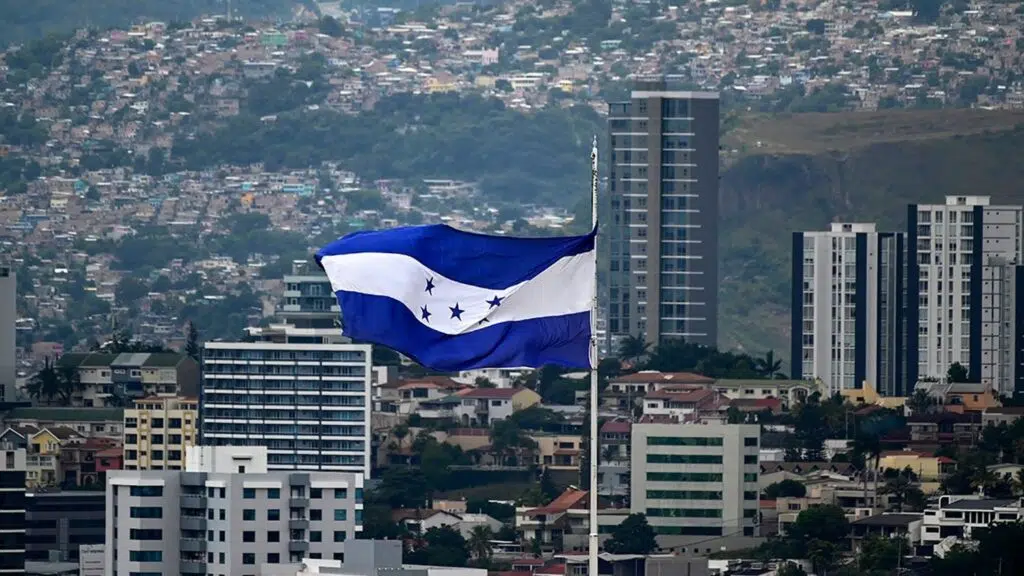
Gabriel Hernán Méndez (Honduras, 1994) is a 30-year-old seminarian, originally from San Pedro Sula, Honduras, who belongs to the diocese of Santa María de las Gracias, and dreams of helping young people in Honduras to abandon gang violence. Currently, he is in his third year of Theology at the University of Navarra and resides at the Bidasoa International Seminary.
From doubt to faith: spiritual awakening
Although his family was not religious, the influence of his grandmother, who taught him to pray, was decisive. However, as a teenager, he moved away from the faith and stopped attending Mass, as constant changes of address and youthful interests kept him away from the Church. Despite this, deep inside, he felt an attraction to the faith that never disappeared.
“In my adolescence, I completely distanced myself from the Church and everything related to religion. This was mainly due to my parents’ work commitments, which forced us to move frequently, which prevented me from having a fixed place to attend Mass. Also, because of my age, other things caught my interest. However, deep down, I always felt attracted to things of the Church,» Gabriel tells us.
Years later, a nun invited him to a catechism class to receive Confirmation. Gabriel agreed, initially motivated by the presence of a classmate he liked, but over time he began to get involved in Church activities. Upon receiving the sacrament, the bishop asked him how he was going to serve a poor Church like that of Honduras, words that resonated deeply with him.
The process of discernment and formation in the seminary of Honduras
A seminarian, now a priest, invited him to vocational discernment meetings aimed at young people who had graduated from high school and who wanted to discover their vocation. At the end of 2013, Gabriel was accepted to enter the major seminary of Our Lady of Suyapa in Tegucigalpa, where he began his formation in 2014 at the age of 19, although without the support of his family.
“It was a new experience for me, since I left without the support of my family, who, not practicing the faith, did not understand my decision to enter the seminary,” he says.
A pause in his priestly formation
After finishing Philosophy (2017), various circumstances led him to pause his priestly formation and return home. He began working in a group of companies dedicated to commerce, which represented a new challenge for him, since he had to adapt to another lifestyle and work environment.
“Here I must mention a person that God put in my path: Magdalena Méndez, the owner of the group of companies. She trusted me and gave me the job despite not having any experience,” says Gabriel.
A call to the vocation as a priest that persists
Over time, he was promoted in the company and one day he was offered the position of General Manager and legal representative of the company. In work and financially, things were going very well for him; he had achieved many things that he never imagined. However, despite everything, the idea of being a priest always kept resonating in his head: “there was a kind of emptiness inside me,” confesses this young man from Honduras.
Throughout this time he maintained communication with his spiritual director. He was later appointed bishop of a new diocese in Honduras and invited to an experience in a parish in his diocese to help him in his discernment process.
“In January 2023, I resigned from my job and moved to the San Matías Apóstol sanctuary, in La Campa, Lempira (Honduras) where Father Rubén Gómez accompanied me. While there, the opportunity arose to come to Spain to an international seminary, that of Bidasoa. The bishop made me the proposal, which I accepted, and in August 2023 I arrived in Pamplona, where I resumed my training and studies with a view to priestly ordination.”
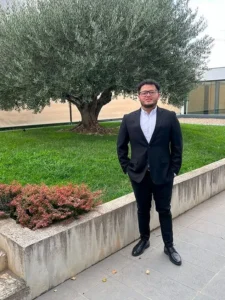 A mission: to help young people caught up in gang violence
A mission: to help young people caught up in gang violence
Throughout this time, Gabriel never stopped praying or asking God for what he wanted for his life. “I grew up among gangs and maras. Honduras is a country with a lot of violence, where young people join violent gangs. Some of these young people saw that I was close to the Church and approached me to talk. To accompany these young people, I thought: I think that God is asking me to be a priest. From my life example, perhaps I can lead these young people to another way of life and discover that the gang is not the only way out,” he relates with emotion.
He is saddened when he thinks that some of his classmates have not finished high school, because they have entered the violent world of gangs. “My city, San Pedro Sula, is marked by gangs and maras, and many young people see no other way out than to join there because they see the group as a family, which they have not found at home. They suffer from emotional deficiencies and family voids” he laments.
His wish: to be a priest who helps these young people
Gabriel aspires to be a priest committed, first, in the spiritual field, evangelizing, and transmitting the love that God has for all these young people. And, secondly, supporting the creation of rehabilitation centers: “When a young person joins a gang, they do not let him leave. That is why it is important to create these centers where children can be welcomed before they enter these organizations, to teach them jobs that occupy their minds.”
In this mission, Gabriel appreciates the work of the Church, which has centers and religious congregations dedicated to working with young people at social risk. However, the work is complicated because, for many of these young people, gangs represent the only viable way out. In addition, the Government shows great disinterest in addressing this problem.
The problem of sects and the lack of priests
Another problem that Honduras is experiencing is the influence of sects: “Today, Catholics are no longer the majority in a country that has traditionally been Catholic. Young people feel more attracted to these sects, since in the neighborhoods there is one on each street, while Catholic churches are scarce, with only one per neighborhood. In addition, the priest often cannot come even once a month, since he has to attend to 50 other temples,” he laments.
With this great challenge that Gabriel has, he asks for prayers from all the benefactors and friends of the CARF Foundation to become a good priest: the first thing that we priests must be clear about is the message of the Gospel and how to transmit it, announcing Jesus Christ without being influenced by ideologies that attack society. On the contrary, he must act like a shepherd and look for the lost sheep, who often do not have someone to show them the way.
“We preach Christ, not ourselves”
Furthermore, for Gabriel, a priest of the 21st century must remember that we preach Christ and not ourselves. “With the rise of social networks, there is a risk that Christ is relegated, and the preacher is put at the centre. For this reason, it is essential that the priest prepares himself intellectually to give an account of our faith, not only with prayers, but also with eloquence in his teaching, both in word and deed”.
In all this task, he thanks the CARF Foundation for the support he receives to train himself more and better. “Well-trained priests are needed because in this world, with so much ideology, we have to give reasons for our faith, to lay the foundations for a new evangelization and thus contribute to the new resurgence of the Church”.
Prayer and thanksgiving
Gabriel is very grateful to all the benefactors of the CARF Foundation and the Association for Humanistic Studies: “I pray for you, and I am very grateful to you because without your help it would not be possible to complete my theological training at the University of Navarra.” Gabriel’s goal is to be able to train himself well in order to return to his diocese and help in the formation of future priestly vocations in his country.
Related
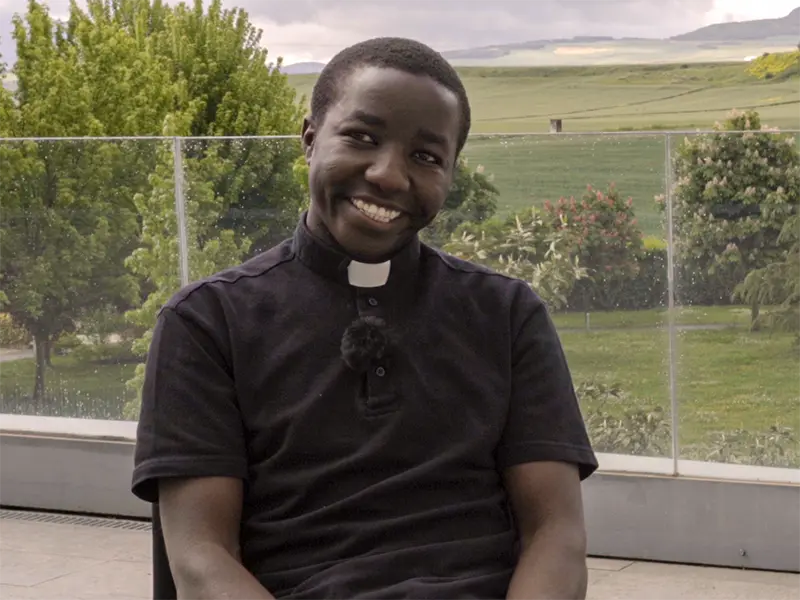
“Being Catholic in Tanzania is a source of pride”
Fundación CARF
16 April, 2025
6 min

The Vatican Suppresses the Sodalitium of Christian Life After a Long Discernment Process
Exaudi Staff
15 April, 2025
1 min
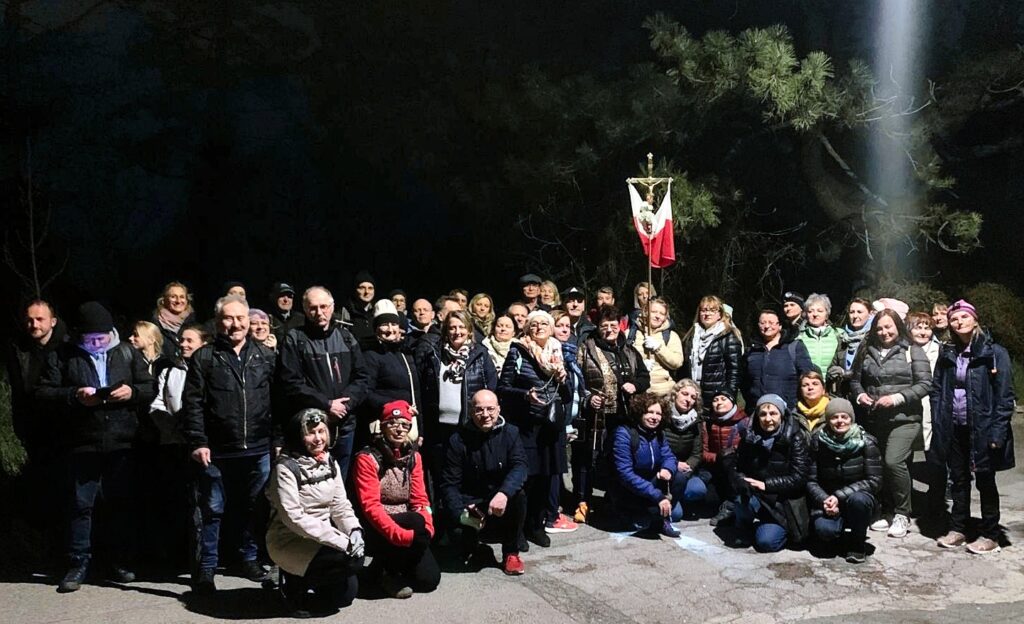
From Kahlenberg to the Papal Cross – Polish Night Way of the Cross in Vienna
Heschel Centre for Catholic-Jewish Relations at the Catholic University of Lublin
15 April, 2025
2 min
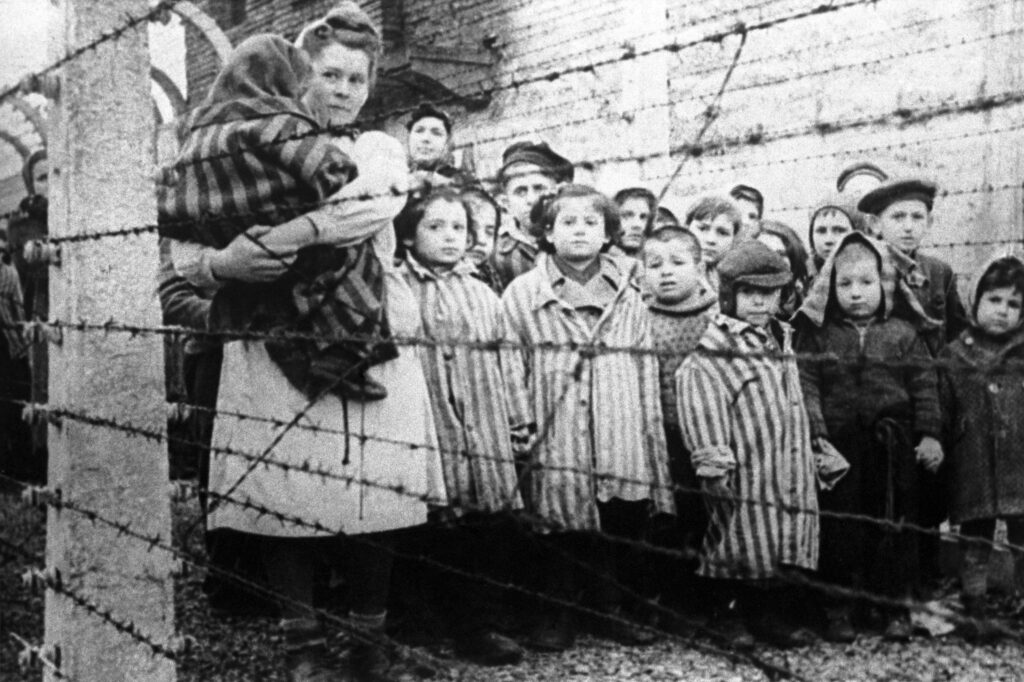
“I Will Never Be Herod for the Innocents”
Wlodzimierz Redzioch
14 April, 2025
6 min
 (EN)
(EN)
 (ES)
(ES)
 (IT)
(IT)

